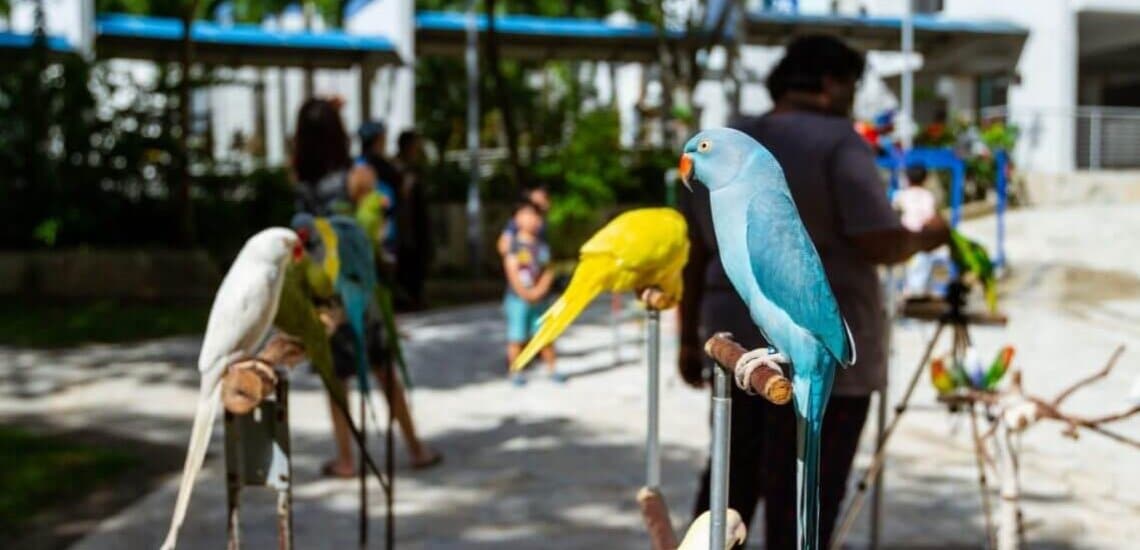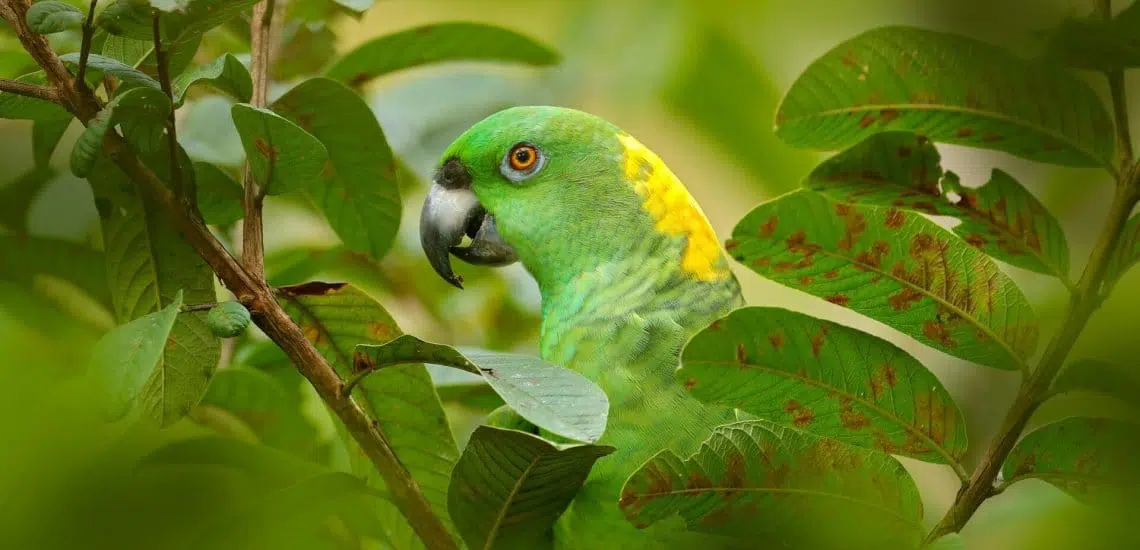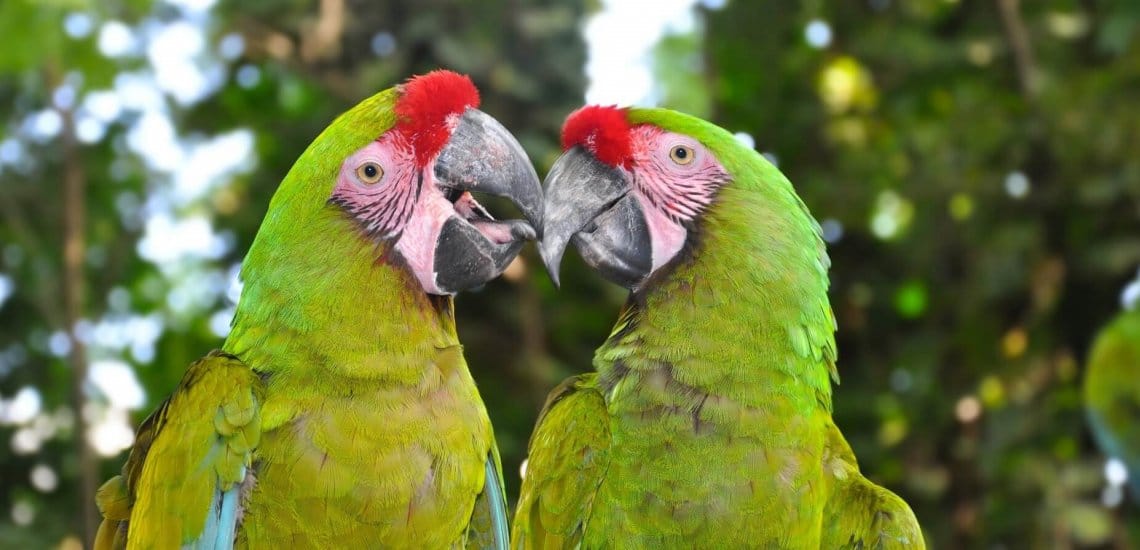Wild parrots illegally captured for pets, Indonesia and Philippines plan solutions

The responsive chatter and dancing of colourful parrots may make for amusing pets, but the backstory of how some of these birds find their way into homes can be heart‑breaking.
A new report from the UN Office on Drugs and Crime shared that between 2015 and 2021, Parrots and Cockatoos made up 4% of all seizures of illegally traded wildlife around the globe.
In Asia, the illegal trade of wild-caught parrots for pets has been on the rise in recent years. Wild-caught parrots are poached from their forest homes, sometimes using glue traps. Poachers attract the birds to a sap-covered perch with a decoy, and the parrots are unable to free themselves.
After being poached, these birds are smuggled from the vast islands of Indonesia to port locations around Southeast Asia. A commonly suspected route of this smuggling is across the sea between Indonesia, and southern islands of the Philippines.
“Smuggling of parrots is conducted in areas that are most challenging to monitor.” Shares Benny Aladin of Burung Indonesia (BirdLife in Indonesia), “A 2018 case study in North Maluku revealed that nearly every village was involved in the hunting of parrots. Although the situation has improved significantly due to intensive conservation efforts, similar issues persist in the southern regions of Maluku”
The journey from the wild to people’s homes can be perilous. Birds have even been discovered smuggled in plastic bottles and drain pipes. Many birds die along the way, and those that make it to their final destination often show signs of stress like plucking out their own feathers.
For some charismatic parrot species, the illegal trade threatens their existence in the wild. According to scientific research compiled on the BirdLife DataZone, the primary threat to the Endangered White Cockatoos (Cacatua alba) and Chattering Lorys (Lorius garrulus) is trade.
The governments of both Indonesia and the Philippines are determined to find a solution for this intensive trade. In April, government officials from each country joined staff from Haribon Foundation (BirdLife in the Philippines), Burung Indonesia (BirdLife in Indonesia), BirdLife Secretariat staff, and members of other NGOs to develop innovative strategies and collaborations to tackle the issue.
This recent meeting comes at a critical point for these species as the rising economic value of the illegally traded birds marks their rising demand. As recently as October 2023, the Philippines and Indonesia worked together to repatriate 73 parrots that had been smuggled across the border.
If you see parrots or cockatoos being sold as pets that are dishevelled, show signs of stress such as plucked feathers, and/or are wary of human presence, these are signs of a possibly wild-caught parrot. Please do not purchase parrots from these sellers and report this to either the relevant authorities on illegal wildlife trade in your countries, your local police department, or local BirdLife Partner. Reporting will help keep wild caught parrots out of the trade and in their forest homes.

Photo from Tony Tilford for Shutterstock
“The illegal parrot trade not only threatens these magnificent birds but the delicate balance of our ecosystems, from which we all benefit. Let’s seize this opportunity to build partnerships, enhance international cooperation, and take decisive action. Together, we can ensure a brighter future for parrots and all beings reliant on healthy ecosystems.”
– Arlie Endonila, Officer-in-charge of Haribon Foundation (BirdLife in the Philippines)


